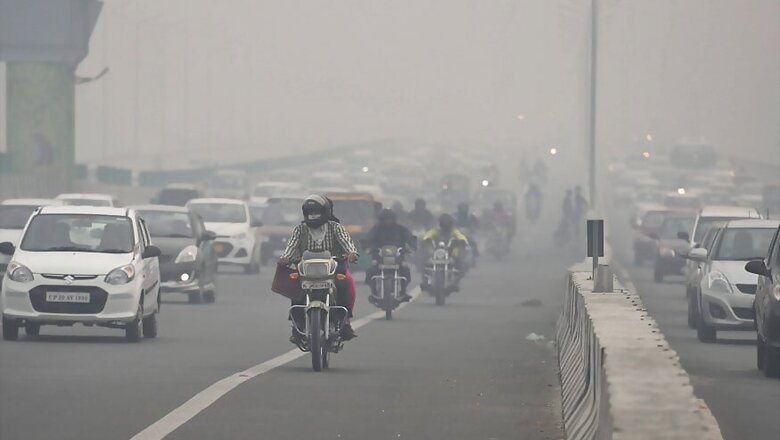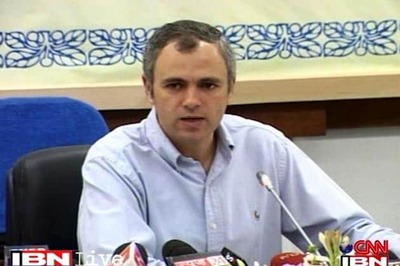
views
New Delhi: The Delhi government has informed the Supreme Court about the steps taken by it for implementing the comprehensive action plan (CAP) which is meant for combating the menace of air pollution in the national capital.
In an affidavit filed in the apex court, the Delhi government has given the status on several issues, including augmenting the service of metro by inducting more coaches and Delhi Transport Corporation (DTC) buses, which would improve the public transport system here.
The matter came up for hearing before a bench of justices Arun Mishra and Deepak Gupta on Friday.
It said that on December 12 last year, the Delhi Metro Rail Corporation (DMRC) has planned to add 420 new coaches on the existing metro lines and their extensions, of which all the coaches have been procured and commissioned.
The affidavit said that DMRC had planned to add 486 new coaches for the upcoming two lines of metro phase three plan, of which 456 coaches have already been commissioned and the remaining are under commissioning.
The affidavit, filed by secretary-cum-commissioner of the Transport Department, said that phase four of the Delhi mass rapid transit system (MRTS), which will have six corridors, is also being planned and the revised project proposal for its implementation was approved by the DMRC Board.
It said that as part of the MRTS project, 772 metro coaches are to be procured, of which 438 are envisaged for MRTS Phase 4 and 334 additional coaches for augmentation of services on the existing lines.
"It is to further submit that no other proposal of the DMRC for procurement of the coaches is pending with the government of Delhi," the court was informed.
The affidavit also mentioned other schemes to curb air pollution such as the Delhi government's decision to engage 3,000 CNG and electric buses under a cluster scheme to augment the city bus fleet.
Out of the 3,000 buses, 1,000 standard floor height non-AC CNG buses are expected to be on the road by May, the affidavit said, adding that another 1,000 low floor CNG AC buses and 1,000 low floor AC electric buses are expected to roll out by July.
With the implementation of common mobility card in all DTC and cluster buses with effect from August 2018, the payment of bus fare can be made through DMRC smart cards and this facility is being promoted by providing 10 per cent discount in fares on usage of DMRC metro card in DTC and cluster buses, the affidavit said.
The court was also told that the Delhi government is carrying out a comprehensive scientific route rationalisation study of all existing bus routes and last mile connectivity requirements after determining the present travel demand in the city so as to maximise service quality and public transport access.
The report, which is likely to be submitted in March this year, is taking the study related to Najafgarh area as a pilot project, the affidavit said.
The study would also comprehensively outline the role of e-rickshaws, auto rickshaws, taxis and other forms of public transport once the rationalised routes are implemented, it said.
"The study report would provide a framework for a multi-phase improvement plan for city bus operations, which would be re-organised," said the affidavit.
It also informed the apex court about the transport department's plan to initiate further necessary action for setting up and commissioning of automated inspection and certification facilities at its vehicles inspection unit at Burari here.
These issues cropped up before the apex court when it was hearing a matter relating to air pollution in Delhi-National Capital Region (NCR).




















Comments
0 comment